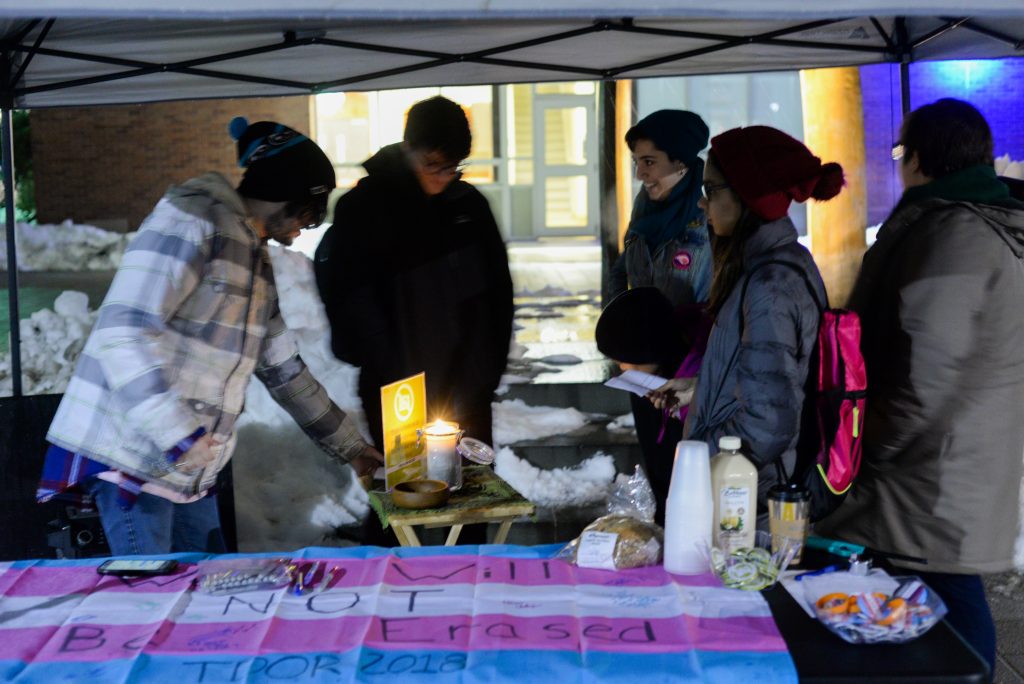
In the midst of dark skies and heavy snow, a group of students gathered under a white tent in front of the Pegasus Statue to sign a transgender flag as part of the Q Center’s ceremony for the national Transgender Day of Remembrance.
Transgender Day of Remembrance is held annually to remember transgender individuals who have passed due to physical violence in the United States. While the day is observed annually on Nov. 20, the Q Center held its ceremonies on Nov. 19 to give students a chance to participate before Thanksgiving break.
Kelly Clark, director of the Q Center, said this observance keeps alive the memories of those gone.
“We’re remembering people we may not have known personally, but the fact is that everybody makes a difference in the time that they’re here,” Clark said. “Having an opportunity to recognize that is important.”
Although the number of transgender individuals who have passed because of suicide or a lack of health care isn’t trackable, Ian Shick, a graduate assistant at the Q Center and the coordinator of this year’s ceremony, said the event also aims to honor those who remain unnamed.
This year’s event included a series of religious ceremonies — a pagan and pre-Abrahamic faith service, a Jewish prayer service and a nondenominational spiritual service with the United Presbyterian Church of Binghamton. According to Shick, the various religious ceremonies were included to give as many students as possible a space to mourn and celebrate life while keeping their spiritual connections alive.
“I come from a pagan background myself and it’s not normally something people remember as a faith,” Shick said. “It’s been something very impactful to me as a trans person, so I want to allow others to feel that space.”
According to Jacob Aaronson, co-director of Keshet, a LGBTQ Jewish organization within Hillel at Binghamton, and a sophomore majoring in computer engineering, traditional Judaism assumes there are two genders and heavily relies on the gender binary in its rituals, laws and services. Therefore, LGBTQ acceptance in the Jewish community varies with the denomination.
“We can only make our religions and cultures more accepting by transforming them from within and having ceremonies like this one,” Aaronson said. “Just as religion is a powerful tool of repression, it’s also used by many as a tool of hope.”
Em Guerra, an undeclared freshman, said they attended the event because they recognized how transgender people are mistreated in society.
“Sometimes it feels like transgender people are just a punching bag society can get away with punching, so it’s nice to have days like this where people come out and say, ‘I see you,’ or ‘I support you and I’m not going to let anything happen to you,’” Guerra said.
The closing vigil consisted of two students holding up the transgender flag students signed throughout the ceremonies, while others held electronic candles. Shick read the names of the 38 transgender people killed in the United States by physical violence and called for their names to be remembered.
“We mourn to remember,” Shick said. “It’s so we can speak some power to these people’s names and not let them be erased or be forgotten as the larger society would probably wish would happen. A lot of times in the news, the names that are in the news aren’t their names; they’re deadnames, the names they don’t wish to be called anymore. We want to remember them how they wanted to be remembered.”


